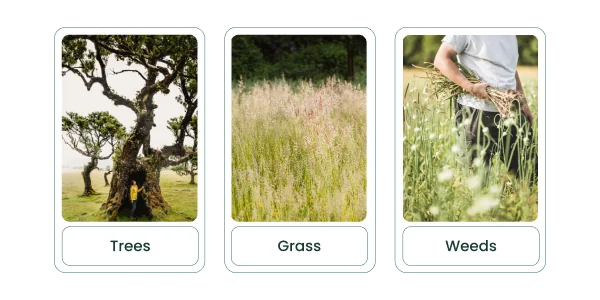
Summer should be a time of outdoor adventures, garden parties, and enjoying the sunshine – but for millions of people, it is also the season of sneezing, itchy eyes, and constant congestion.
Hay fever affects around one in four people in the UK, making it one of the most common allergic conditions. While you cannot cure seasonal allergies, you can certainly take control of them. This guide will help you understand what triggers your symptoms, recognise the full range of ways hay fever might be affecting you, and most importantly, give you practical strategies to manage your condition effectively.
From simple avoidance techniques to daily management routines, you will discover that small changes can make a notable difference to how you feel during pollen season. Remember, managing hay fever is not about eliminating every symptom – it is about reducing them enough so you can get back to enjoying summer.
Understanding Seasonal Allergies: What Triggers Hay Fever?
If you are one of the millions of people who dread summer because of sneezing, itchy eyes, and a stuffy nose, you are not alone. Hay fever (also called seasonal allergies) can turn beautiful sunny days into a struggle. The good news is that understanding what causes your symptoms is the first step to feeling better.
Think of hay fever as your body’s case of mistaken identity. When tiny pollen particles float through the air and enter your nose or eyes, your immune system thinks they are harmful germs trying to make you sick. So, it fights back by releasing chemicals called histamines, which cause all those uncomfortable symptoms you know so well: the runny nose, watery eyes, sneezing fits, and that stuffed up feeling that makes you want to stay indoors.
The main troublemakers during summer are tiny pollen particles that you can’t even see. Here are the biggest culprits:
- Trees: While most tree pollen appears in spring, some trees like oak and birch keep releasing pollen into early summer. This pollen is so light it can travel for miles on the wind.
- Grass: This is your biggest enemy in summer. Common grasses like the kind you see in parks, lawns, and sports fields release billions of microscopic pollen grains from late spring through early autumn. Since grass is everywhere and releases pollen at ground level where you walk and play, it’s hard to avoid.
- Weeds: Ragweed is the worst offender here – just one plant can produce a billion pollen grains in a single season! Other weeds like plantain grow in disturbed areas like construction sites and abandoned areas, so you might encounter them during your daily routine.

Summer creates the perfect storm for allergy sufferers. Hot weather makes plants grow faster and produce more pollen. Dry, windy days blow pollen everywhere – sometimes for miles. Longer days mean plants release pollen for more hours each day. And of course, you are outside more during summer, which means more exposure to all that floating pollen.
Here is something that might help you plan your day: grass pollen is usually worst in late morning and early evening, while weed pollen tends to be highest in the early morning. Rainy days can be your friend because rain washes pollen out of the air, giving you temporary relief.
Recognising the Symptoms: More Than Just a Runny Nose
Many people think hay fever is just about sneezing and a runny nose, but it can affect you in ways you might not expect. If you have been feeling unusually tired during summer or struggling with headaches, your seasonal allergies might be the culprit.
You’ll recognise these classic hay fever symptoms: sneezing fits that seem to come from nowhere, a constantly runny or stuffy nose, itchy, watery eyes that make you want to rub them, and a scratchy throat that needs constant clearing.
Here’s where it gets tricky – hay fever can cause symptoms that do not seem obviously connected to allergies:
- Fatigue: When your body is constantly fighting what it thinks is an infection, it is exhausting. Many people feel drained all summer and cannot figure out why.
- Headaches and sinus pressure: That heavy, achy feeling around your forehead and cheeks is not just in your head. Blocked sinuses create real pressure and genuine headaches.
- Poor sleep: Congestion makes it hard to breathe through your nose at night, leading to mouth breathing, snoring, and restless sleep. You wake up feeling tired even after a full night’s rest.
- Brain fog: When you are not sleeping well and dealing with constant inflammation, it is no wonder you feel mentally fuzzy. Many people struggle to concentrate during allergy season.
- Ear problems: Your ears can feel full or cause mild hearing issues since your ears, nose, and throat are all connected.
These symptoms do not just make you uncomfortable – they can seriously affect your quality of life. You might avoid outdoor activities you love, feel too tired to socialise, or struggle at work or school. Some people even feel irritable during allergy season, which makes sense when you are dealing with constant discomfort.
The important thing to remember is that all these symptoms are real and valid. You do not have to just “tough it out.”

Allergy Avoidance Tips: Reducing Exposure to Pollen
You cannot completely avoid pollen during summer, but you can significantly reduce your exposure with some simple strategies. The key is being smart about when and how you spend time outdoors.
Know Your Enemy: Check Pollen Forecasts
- Check daily pollen counts on weather apps or websites
- Look for forecasts that break down grass, tree, and weed pollen separately
- Plan outdoor activities for days with lower pollen counts
- Consider indoor alternatives on high pollen days
Time Your Outdoor Activities
- Best times: Early morning (before 10am) and late evening (after 6pm)
- Worst times: Midday for grass pollen, early morning for weed pollen
- Rainy days: Perfect for outdoor activities as rain washes pollen from the air
- Windy days: Stay indoors when possible as wind spreads pollen
Create a Pollen-Free Zone at Home
- Keep windows closed during high pollen days
- Use air conditioning instead of opening windows
- Install high-quality air filters in your ventilation system
- Change air filters regularly
- Use a portable air purifier in your bedroom
- Dry clothes indoors rather than hanging them outside
Smart Outdoor Strategies
- Wear wraparound sunglasses to protect your eyes
- Keep car windows closed and use air conditioning on recirculate mode
- Avoid outdoor exercise on high pollen days
- Move workouts indoors when pollen counts are high
- Wear a hat to keep pollen out of your hair
The Post-Outdoor Routine
- Change clothes immediately when you come inside
- Put worn clothes straight in the laundry basket
- Shower and wash your hair before bed
- Keep shoes by the door to avoid tracking pollen through your home
- Rinse your eyes with cool water
- Use saline nasal rinses to flush out pollen
Garden and Yard Work Tips
- Wear a mask when doing garden work
- Consider delegating lawn mowing to someone else
- Water your garden in the evening to reduce airborne pollen
- Choose low-pollen plants for your garden
- Ask your local nursery for advice on allergy-friendly plants
Quick Daily Habits
- Rinse eyes with cool water when coming indoors
- Use saline nasal rinses regularly
- Keep car windows closed during commutes
- Wipe down pets after they’ve been outside
- Clean surfaces regularly to remove settled pollen
Remember, these strategies work best when used together. You do not need to become a hermit, but being strategic about your exposure can make a huge difference in how you feel during allergy season.
Daily Management: Keeping Symptoms Under Control
Managing hay fever means having a daily routine that keeps symptoms under control. With the right over-the-counter treatments, you can enjoy summer without constant discomfort.

Antihistamines: Your First Line of Defence
Daily antihistamines are often the most effective hay fever treatment. Non-drowsy options like loratadine (Clarityn), cetirizine (Zirtek), or fexofenadine (Telfast) work best when taken consistently rather than only when symptoms appear. Start taking them a week before pollen season begins, preferably at the same time each morning. Be patient – full effects can take a few days to kick in.
Nasal Sprays: Target Congestion
Nasal sprays target the congestion with corticosteroids or antihistamines. For example, sprays such as fluticasone or budesonide work well for stuffy noses and sinus pressure. Start 1-2 weeks before pollen season for best results, and be patient as full benefits take 1-2 weeks of regular use.
Saline nasal sprays are also helpful for washing away pollen and moisturising irritated nasal tissues throughout the day.
Eye Drops: Relief for Itchy Eyes
Antihistamine eye drops like ketotifen provide targeted relief when eyes feel itchy or before going outside. Artificial tears help wash away pollen, and keeping drops refrigerated provides extra soothing relief.
Start your morning by taking your daily antihistamine, using nasal spray, and checking the pollen forecast. Apply eye drops before heading outside on high pollen days. In the evening, shower and wash your hair to remove pollen, then use nasal spray again if symptoms persist.
Remember, everyone’s hay fever is different, so don’t be afraid to try different combinations.
When to Seek Medical Help for Persistent or Severe Allergies
While many people can manage their hay fever with over-the-counter treatments, there are times when professional help is necessary. Knowing when to speak to a pharmacist or GP can make the difference between struggling through another summer and finding real relief.
Your local pharmacist is often the best first port of call for hay fever advice. They can help you choose the right combination of treatments, check for interactions with other medications you are taking, and suggest alternatives if your current approach is not working. This is especially helpful if you are unsure which products to try or if you are taking other medications.

Book an appointment with your GP if over-the-counter treatments have not provided adequate relief after 2-3 weeks of consistent use. Your doctor can prescribe stronger antihistamines, nasal sprays, or other treatments that are not available without prescription.
You should also see your GP if your symptoms are significantly affecting your daily life – struggling to sleep, finding it hard to concentrate at work, or avoiding activities you normally enjoy. These are not just minor inconveniences you should accept; they are signs that your allergies need better management.
Overall, discussion with a healthcare professional will allow you to get effective treatment and they may be able to offer you stronger treatments like prescription antihistamines or nasal sprays. At e-Pharmacy, you can order from the comfort of your own home to get your treatment right to your doorstep. For more complex cases, your doctor may refer you to an allergy specialist, who can create a more targeted treatment plan for you.
Red Flag Symptoms
Seek medical attention promptly if you experience breathing difficulties, wheezing, or chest tightness, as these could indicate asthma triggered by your allergies. Severe facial swelling, particularly around the eyes or mouth, also requires immediate medical assessment.
If you develop frequent sinus infections, persistent headaches, or ear problems during allergy season, these complications need professional evaluation. Similarly, if your symptoms persist well beyond typical pollen season or seem to be getting worse each year, it is worth investigating further.
Many people assume hay fever is just something they have to endure, but effective treatments are available. If your current approach is not working, do not give up – speak to a healthcare professional about your options. Quality of life matters, and you deserve to enjoy summer without constant discomfort.







